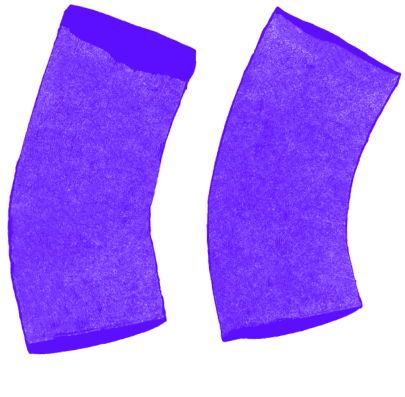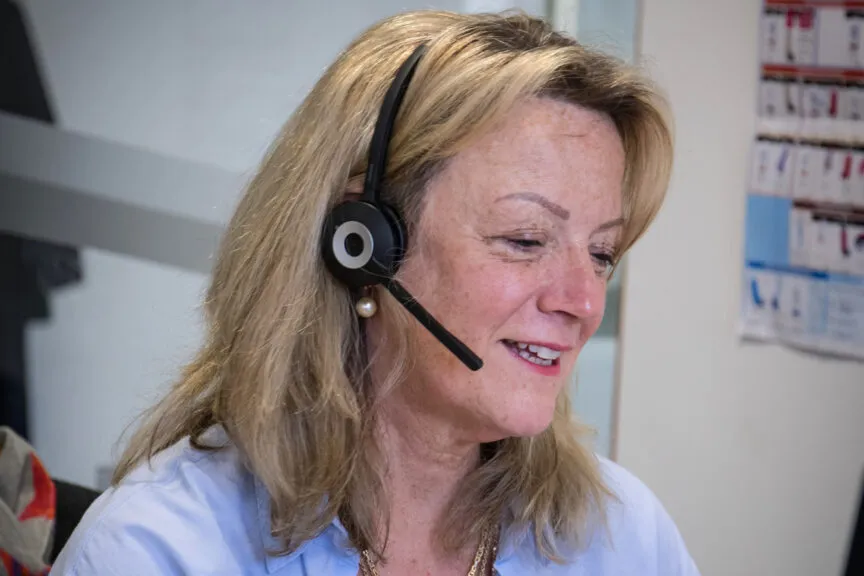What is lung cancer screening?
Lung cancer screening is an NHS lung health check to see how well your lungs are working and look for signs of lung cancer.
The checks can help to find lung cancer early, sometimes before people have any symptoms. This means people can be treated more quickly, and treatment is more likely to be successful. Find out more about how lung cancer is diagnosed and treated.
At the moment lung cancer screening is only available in some parts of the UK, but it should be available across the whole of the UK by 2029.
Speak to your GP if you have symptoms
Tell your GP straight away if you notice any symptoms of a lung condition including:
- feeling breathless
- wheezing
- coughing up phlegm
- chest tightness or pain
- a cough that does not get better, or which gets worse
- coughing up blood
- weight loss.
Do not wait to be invited for a lung health check. Your GP can help you deal with symptoms and arrange tests.
It’s important to work out why you’re having symptoms so you can get the right treatment.
Why have I been invited for a lung health check?
Everyone aged 55-74 may be invited for lung cancer screening.
You'll be eligible for lung cancer screening if you:
- are aged between 55 and 74
- smoke or have ever smoked
- are registered with a GP
- live in a part of the UK where lung cancer screening is available.
Let your GP know if you smoke, or have ever smoked. If your GP doesn't know this, you may not get invited for your lung health check.
If you think you should have been invited but have not received an invitation, you can contact the lung cancer screening programme in your local area and ask for a referral.
You can check to see if the programme is available near you on the NHS website.
What are the benefits of a lung health check?
Even if you feel well and have no respiratory symptoms, it’s important to go to your lung health check if you’re invited.
Most people who have a lung health check will not have lung cancer, or any other lung condition. For those who do, lung health checks are making a big difference by picking things up early. This helps people to get an early diagnosis and makes treatment easier.
Benefits of a lung health check
- Most people will not have cancer which can be reassuring if it’s something you’ve been worried about. If lung cancer is found at an early stage, it can be treated more quickly, and treatment is more likely to be successful.
- Lung health checks can sometimes help diagnose other lung conditions too, like emphysema (a type of COPD) and bronchiectasis.
- Lung health checks can motivate some people to give up smoking. The lung health check includes advice and support to quit. We also have lots of information to help you stop smoking.
- Even if no further action is needed, you’ll have the chance to talk to a healthcare professional about how you can improve your general lung health. For example, by quitting smoking, eating healthily or doing more physical activity.
What happens at a lung health check?
The main aim of the NHS lung cancer screening programme is to catch lung cancers at an early stage and reduce deaths from lung cancer. If lung cancer is found early, it is much easier to treat. But lung health checks can also help find other conditions early too.”
Dr Andy Whittamore, Asthma + Lung UK’s GP
Your lung health check appointment
The first part of your lung health check is an appointment to talk to a healthcare professional, usually a nurse. This could be in person or over the phone.
They’ll check your height and weight, and ask some questions about your general health, medical history, family history, and smoking history, including:
- How much have you smoked and for how long?
- Have you had any lung infections before, like pneumonia, tuberculosis (TB), or bronchitis?
- Do you have any existing lung conditions like chronic obstructive pulmonary disease (COPD)?
- Have you ever been exposed to asbestos?
- Is there any history of lung cancer in your family?
After this, you’ll either be told no further action is needed, or you’ll be booked in for a CT scan.
Your lung health check CT scan
Not everyone who has a lung health check will need to have a CT scan. You’ll only be offered a CT scan if your consultation suggests you could be at a higher risk of developing lung cancer in the future.
If you need a CT scan, it could be on the same day or you may need a follow up appointment to have it on another day.
A CT scan can give a detailed picture of your lungs.
We have more information about CT scans.


Try not to worry if you’re offered a CT scan following your consultation. A CT scan can help your healthcare professional get all the information they need to give you the best support.

Your CT scan results
It could take up to four weeks to get the results back from your CT scan. Your results letter will tell you what needs to happen next, for example, if you need further screening or a follow up appointment.
Your CT scan results may say that you have:
- nothing showing up on your scan
- signs of possible lung cancer
- nodules on your lungs
- scarring on your lungs
- signs of another lung condition
- other findings not related to the lungs.
Nothing showing on the scan
If nothing is showing up in your scan, you’ll probably be asked to come back for further routine screening every two years, until you are 75.
Even if your CT scan is clear, it’s a good time to make some lifestyle changes to support your lung health, like staying active, eating healthily, and quitting smoking.
If you smoke, quitting smoking is the most important thing you can do to reduce your risk of future health problems.
You’ll be offered stop smoking support and medicines as part of your lung health check.
We also have lots of support and information about giving up smoking and how it can benefit your lung health.
Possible early signs of lung cancer
If your scan showed possible signs of lung cancer, you should be given an appointment with a rapid access lung clinic within two weeks.
This is so you can have tests quickly to help confirm whether or not you have cancer, and so you can get specialist support and treatment.
If your scan showed signs of lung cancer, you may feel worried and scared and wonder what happens next. Find out more about the support available for lung cancer. You can also call our Helpline.
We have lots of helpful advice about diagnosing lung cancer, and the treatments available.
Nodules on your lungs
You may be invited for follow up scans if you have small nodules in your lungs. A nodule is a small lump which may show up on a CT scan as a white spot.
Small nodules are usually nothing to worry about, but it’s best to monitor them with follow up scans to check for any changes.
Scarring on your lungs
Your CT scan may show scarring on the lungs. Small areas of scarring are common in the lungs as people get older.
Some people may need a follow up appointment with their GP who can arrange further testing if needed to see what’s causing it.
Other lung conditions
Lung health checks sometimes show up signs that you could have another lung condition, for example, chronic obstructive pulmonary disease (COPD), Idiopathic pulmonary fibrosis (IPF), or bronchiectasis.
It’s important that you’re offered lung function tests such as spirometry, especially if you have any respiratory symptoms. The letter you get after your scan should tell you who will arrange this. It could be an appointment with your GP.
Treatment for lung conditions like COPD can make a real difference to your symptoms and lower your risk of becoming seriously unwell.
If you are diagnosed with a lung condition, we have lots of information and advice to support you. You can also call our Helpline.
Other findings not related to the lungs
Sometimes the scan picks up other findings not related to the lungs. For example, one of the more common findings is hardening of the arteries.
If this shows up in your scan, your GP can give you support and advice to help you lower your risk from heart disease in the future. The British Heart Foundation has more information about heart disease.


We’ve had quite a few calls on the Helpline from people looking for support and advice after other findings in the lungs are found at their lung health check. We’re able to reassure them, let them know what they need to do next, and signpost them to expert advice on our website.

How we can support you
Whether your CT scan shows you have lung cancer, nodules or scarring on the lungs, or you’ve been told you may have another lung condition, we’re here to support you.
We also have lots of expert information and advice about different lung conditions.
You can call our Helpline to speak to one of our friendly respiratory nurse specialists. We also have face-to-face or virtual support groups you can join.

Get support
Call or email our helpline for support with your condition. Get advice on medicines, symptoms or travelling with a lung condition. You can also find support through our groups.








